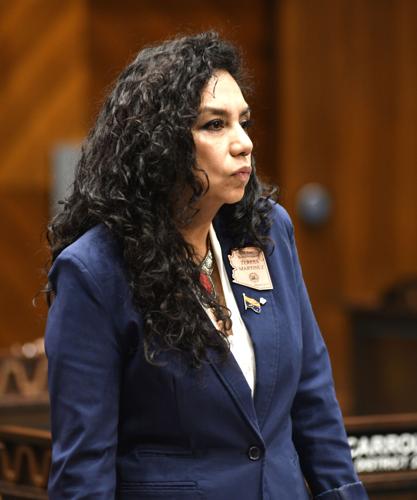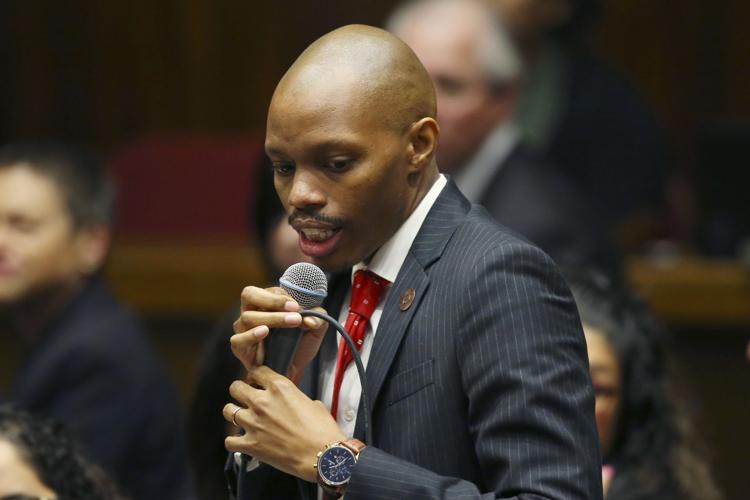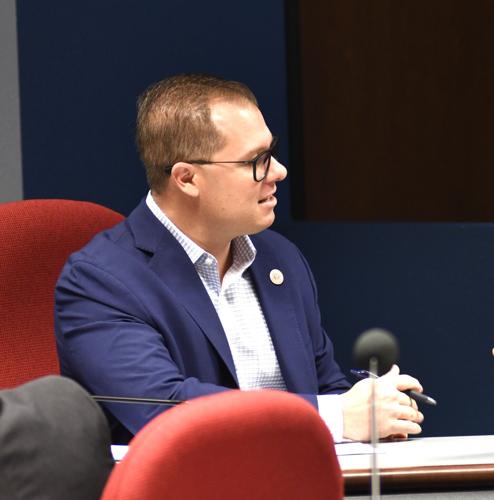PHOENIX — A House panel voted Wednesday after heated debate to prohibit election officials from accepting already filled-out early ballots at polling places unless voters first provide identification.
The party-line 7-6 vote by the Republican-dominated House Committee on Government and Elections came amid questions about whether the measure would erect new barriers to voting.
Rep. Lorenzo Sierra, D-Avondale, said it would exacerbate long lines to cast a ballot that often occur now.
The rhetoric turned contentious among several lawmakers with sharply divergent views on what effect House Bill 2241 would have on members of minority communities — and whether requirements to present ID are effectively saying that minorities can’t manage to comply.
“As a person of color ... I am a little offended that we say, ‘Oh, poor people or minorities or people of color, they don’t have ID and we’ve got to make is super easy for them to vote,’ ‘’ said Rep. Teresa Martinez, R-Casa Grande. She said she was speaking not only as someone of color but as the mother of a child who is Black and Native American.
“It is a lot offensive that people want to say, ‘Oh, you poor little thing, I’ll help you, we’ll make it easy for you,’ ‘’ Martinez said.
She similarly dismissed concerns that residents of some rural areas lack the kind of identification the legislation would require.
“I can assure you that people in Casa Grande, people in Stanfield, people in Pichacho, people in Superior, Hayden, Winkelman, they have ID,’’ Martinez said. That’s because when police come to talk with them, for example, they are asked to produce identification, she said.
House Minority Leader Reginald Bolding, D-Laveen, told Martinez that just because access to polling places hasn’t been an issue for her and her family does not mean there is no problem.
“I haven’t been shot by police,’’ he said. “But that doesn’t mean other African-American across this country aren’t shot by police. So that doesn’t mean that’s not an issue.’’
He said lawmakers need to look beyond their own experiences.
Martinez was not impressed by that example.
“White people are shot by police as well,’’ she said, saying that looking at issues in this way “create(s) people of color as victims.’’
“I can help myself,’’ Martinez said. “I can help people of my same color.’’
Violation would be a felony
Anyone who has received an early ballot is free to drop it in a mailbox without further ID.
Some people, however, choose to wait until the last minute and take them to a polling place. Under current law, all they need do is drop it off.
HB 2241 says election workers would need to demand ID “on which the voter’s name reasonably appears to be the same as on the ballot affidavit.’’
Those dropping off ballots for others would need their own ID and also would have to sign an affidavit that they are handling only those from family members, household members or caregivers.
In both cases, failure to comply would be a felony, with the penalty of a year in prison.
Rep. Jake Hoffman, R-Queen Creek, who wrote the measure, said this isn’t about race. He said polls show that a majority of Hispanics, Blacks and Asians support voter ID requirements.
Hoffman said it’s also not partisan, saying a poll found 69% of Democrats surveyed want people to produce identification when casting ballots.
“We want to make it as easy as possible for every legal ballot to be cast,’’ he said. “And we want to make it hard for illegal ballots to be cast.’’
Sierra said that ignores the hurdles Hoffman’s bill would impose. He cited the situation in his own voting precincts, where about 800 people come to the polls.
“Half the people come with their early ballots filled out,’’ Sierra said. These are people who like getting their ballots early, filling them out at home, putting it in the envelope, and liking “the convenience of just dropping it off,’’ yet still participating in Election Day.
“There’s already long lines at that polling station,’’ he said. “If we are doing this, boy, we are just making it so inconvenient for working people that want to drop off their ballot, that have done right by the electoral system and by our democracy.’’
Jennifer Marson, executive director of the Arizona Association of Counties, said the legislation would complicate the existing process where poll workers check in people who come to fill out their ballots on Election Day. It’s often hard enough to get enough people to staff these facilities, she said.
HB 2241 would force those who just want to drop off their already filled-out ballots to get in the same line to check in, Marson said.
“So, on the voters’ end, you’re going to have longer wait lines in the instances where it’s a big election,’’ she said, not just for those who simply want to drop off their ballots but those waiting in line to vote that day.
The measure now needs approval of the full House.
Among many proposals
The measure is just one of many proposals this year by Republican lawmakers to impose new requirements on the voting process. Others range from limiting or outlawing drop boxes, to restricting or eliminating early voting.
Bolding said this bill is part of a larger agenda by the Legislature’s Republican majority.
“We’ve seen a sustained effort at the Legislature to make it more difficult to use the vote-by-mail system,’’ he said, and not just this year. Bolding pointed out that lawmakers last session scrapped the “permanent early voting list,’’ requiring counties to stop sending early ballots to people who decide not to use them in two successive election cycles.






